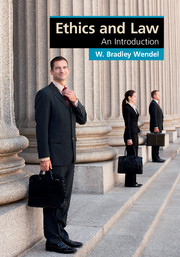8 - Prosecutors
Published online by Cambridge University Press: 05 October 2014
Summary
In the criminal justice system, the people are represented by two separate yet equally important groups. The police who investigate crime and the district attorneys who prosecute the offenders. These are their stories.
Anyone who has turned on a television set in the past twenty years, anywhere in the English-speaking world, has heard the voiceover introduction of the long-running and endlessly replayed series Law and Order. (Admit it – you heard the “chung CHUNG” sound in your head when you read those lines.) But notice something strange in those familiar words: The people are represented by prosecuting attorneys. The assistant district attorneys shown investigating the facts, talking to witnesses, and trying cases in the courtroom have a boss – an elected or appointed political official – but, in theory, their client is an abstraction called “the people” or, in Commonwealth countries, the Crown. Criminal cases in these nations are captioned R v. Defendant, with the “R” standing for Rex or Regina – king or queen. Prosecutors claim to act in the name of the sovereign or society as a whole, seeking to punish offenses against the common good. That makes them different from most other lawyers who work on behalf of an identifiable client whose interests may differ from the common good. Although in theory they represent the public interest, prosecutors are employed by the state. All lawyers are, in principle, “officers of the court,” meaning that their authority is derived in some way from that of the judicial system. Prosecutors are, in addition, subject to the direction of government officials. In most common law countries, the Director of Public Prosecutions or the Crown Attorney is an appointed position. (As in so many things, the United States is an outlier, and the chief prosecutor in many cities and counties is an elected office.) Just as lawyers representing a corporation in principle represent the shareholders acting through an elected board of directors, prosecuting attorneys represent all citizens, acting through some combination of elected and appointed political officials.
- Type
- Chapter
- Information
- Ethics and LawAn Introduction, pp. 156 - 172Publisher: Cambridge University PressPrint publication year: 2014

